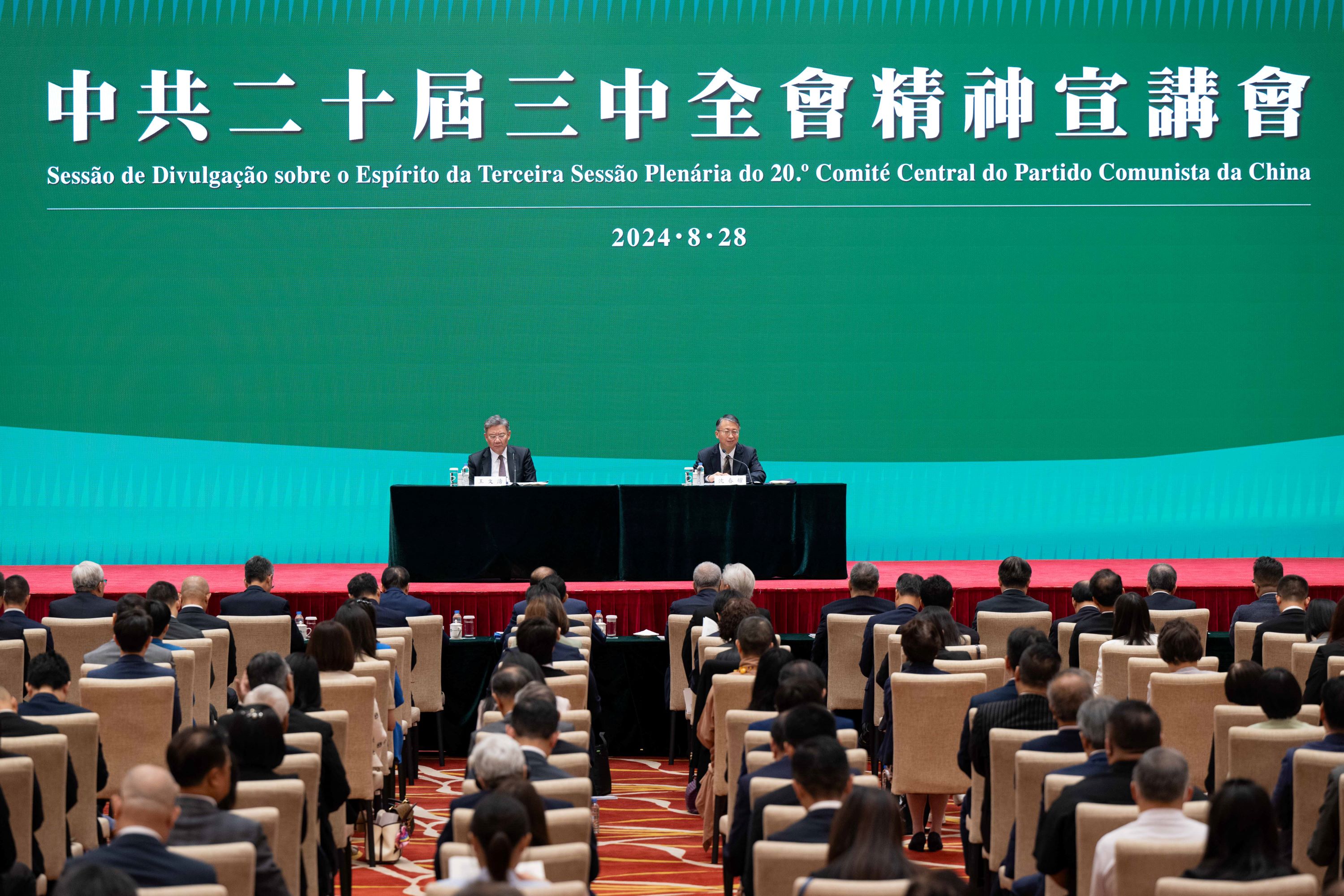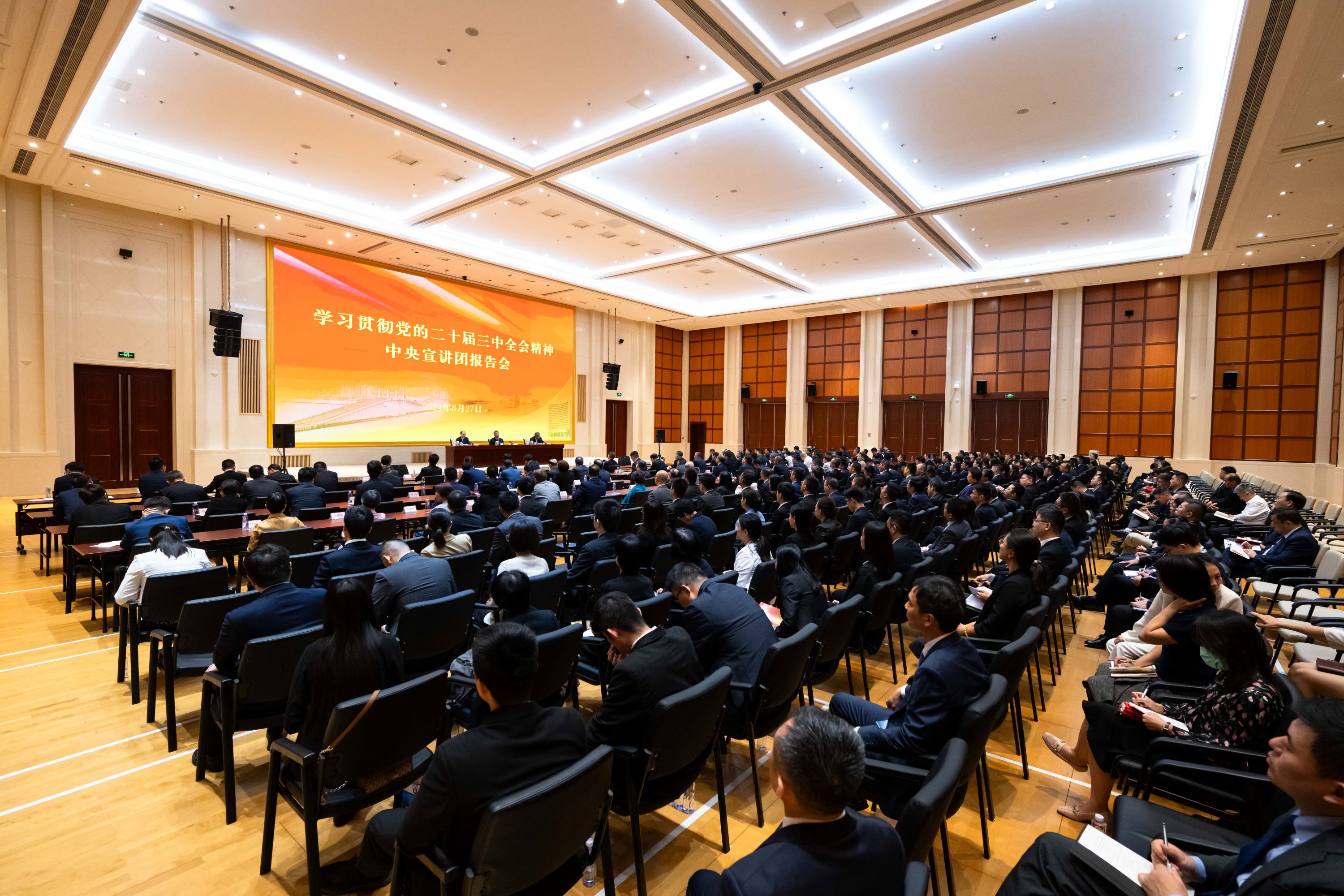
Macao’s top leaders have highlighted the city’s gateway role in the nation’s continuing reform, noting that its comprehensive plan offers guidance for the city’s own efforts.
They made the remarks after attending two high-profile seminars to explain the guiding principle of the third plenary session of the 20th Central Committee of the Communist Party of China.
Senior central government officials – Shen Chunyao, chairman of the Legislative Affairs Commission of the Standing Committee of the National People’s Congress, and Wang Wentao, the nation’s minister of commerce – outlined key takeaways from the session to over 1,000 representatives from all walks of life in the city.
READ MORE: Macao SAR encouraged to contribute to reform goals with own strengths
The officials urged the Macao Special Administrative Region to align closely with national development strategies and help the country’s reform efforts by utilizing its distinctive advantages, which sparked a strong endorsement by the participants.
Kevin Ho King-lun, a Macao deputy to the National People’s Congress and president of the Industry and Commerce Association of Macao, reaffirmed the city’s role as a “specific connector”.
Noting that Macao maintains close ties with Portuguese-speaking and ASEAN countries, Ho said he believes the city should leverage these networks and its international influence to tell good stories of the nation and Macao to the global audience.
READ MORE: Macao’s former top judge announces CE bid
Deputy Director of Macao’s Economic and Technological Development Bureau Chan Tze-wai said the nation is currently expanding international cooperation in areas such as economy, trade and technology, aiming for a higher level of openness. In this process, Macao can play a unique role with its distinct advantages.

She noted that under the “one country, two systems” principle, Macao can serve as a gateway to help more foreign enterprises access the vast Chinese mainland market. Given its extensive connections with Portuguese-speaking countries, the city can also facilitate promotion of exchanges and collaborations between China and these nations in areas like innovation, entrepreneurship, and technology.
She also noted that Macao can harness the strengths of other cities in the Guangdong-Hong Kong-Macao Greater Bay Area.
ALSO READ: Hong Kong-Zhuhai-Macao Bridge sees growing imports, exports
Chan highlighted that Macao boasts rich research achievements in fields like integrated circuit design and traditional Chinese medicine. By leveraging the solid industrial capacity of neighboring Guangdong province, it can collectively drive the development of the nation’s new quality productive forces.
Director of the Public Administration and Civil Service Bureau Ng Wai-han raised questions about deepening public administration reform. She stated that by emphasizing the importance of further deepening comprehensive reforms, the third plenary session reinforced the SAR’s determination to further deepen public administration reforms and also provided crucial guidance for Macao.
ALSO READ: Macao H1 GDP jumps 15.7% YoY
She pledged that her bureau will focus on further innovating public services and enhancing the capabilities of civil servants, including management, to allow government services to better address the needs of residents and enterprises.
During the seminar, Wang mentioned Macao’s status as an international metropolis is well-deserved and this is the city’s “golden business card”. A local program host and director-general of the Macau Live Streaming Association José Chan Rodrigues expressed concerns that some residents may not understand the true value of the city’s prestigious status. He said he hoped that in the future Macao’s positioning as an international metropolis will become more widely recognized through the development of culture and new media trends.


